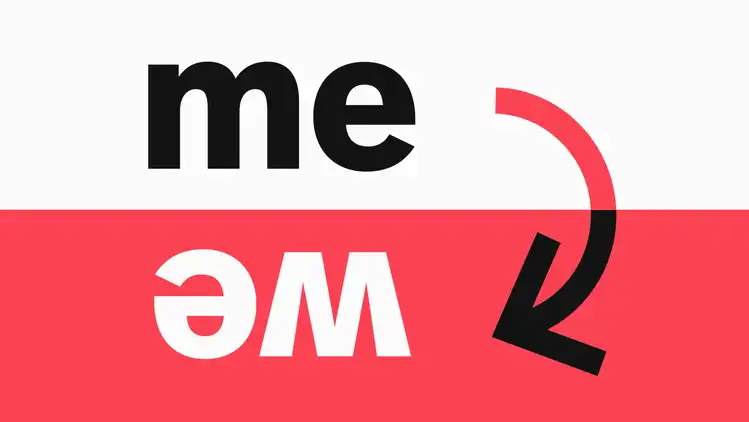Article
Me vs. We: My Relationship With Technology

Relationships are complicated. Whether we’re talking about interpersonal relationships between friends, family, or lovers, or the relationships we have with the growing forms of technology around us, it’s safe to say it’s a tricky subject to navigate, no matter what stage of the relationship you’re at. Developing, fine-tuning, and working on these relationships is no easy task, but one that can be extremely rewarding.
I’ve been talking to clients around the globe about how technology can be used to build relationships between people, organizations, and products. However, I stress how hard it is to start a relationship, especially if you want to substitute technology for hard work. Some people don’t want to accept this: Look at the techno-utopists of the world who pledge allegiance to the all-encompassing salvation of technology, or the social media extremists who claim that their life-changing, disruptive app is unrelentlessly loved around the world by millions. To some extent, it sounds more like the kind of relationship a junkie might have with crack…
When working with clients in the fields of health and mass mobility and developing cognitive services for them, I’ve learned a lot about what’s possible (and what’s not) when it comes to the strengths and limitations of technology. What stands out when it comes to developing and redefining relationships between people, products, and services? Here are some of the key insights:
Current tech brand relationships are: one-way, opportunistic, reactive, transactional, and evoke a sense of dehumanization.
When brands establish a relationship with their customers by using technological solutions, they're often unequal, superficial, but most importantly, opportunistic. Whether it’s money or data, the question that organizations ask is “What can I get out of this relationship, right now?” It’s a short-term tradeoff, and I strongly suggest we approach it from a different angle: What if organizational value focused on the duration and quality of the relationship, instead of the short-term transactions and instant conversion rates? What if you were to build on a long-term, more effective and efficient economic life cycle? What could your organization’s potential be?
Would you still send me 10 emails a week? Would you stand behind your consumer, taking responsibility during the good times, but also the bad? If your conversion rate is initially at just 5%, it may seem ludicrous to even consider this. After all, what would it deliver?
Honestly? My first impression is that it would deliver massive untapped potential and value.
If you were a brand, there’s a high chance you wouldn’t “date yourself” past the first few encounters.
Imagine you’re a brand. Would you take yourself out for dinner? Maybe once, out of curiosity. That’s how brands lure you in, after all. But in many cases, you’ll begin to realize there are qualities integral to a healthy relationship your brand is lacking: It may be focused on “me” instead of “we”, it’s wildly unpredictable, and it’s not fully honest. It’s not as open to criticism or constructive feedback or willing to change and adapt for the other. And without these essential qualities, you have a static relationship (or brand) that’s not dynamic or evolving.
Technology provides exciting opportunities we’ve only begun to venture into. So why do we find ourselves stuck in the same rut, repeating the same ineffective actions and procedures over and over? That’s why to help combat staying in this stasis, we’ve developed the Rethink Your Thinking methodology here at Edenspiekermann--to avoid getting stuck with that terrible date.
Can you activate the relationship life cycle thinking through product development and service design? Absolutely.
Take a look at the proof we’ve collected through working on projects with our clients:
-
We’ve been working closely with Mercedes Benz and Faraday Future to drastically transform our relationships to cars as we switch from owning cars to simply using and having access to them, as well as exploring what the consequences for brands are.
-
Subscription-based services with Alcon, a subsidiary of Novartis, have dramatically changed how consumers value their products. By using dynamic insights, data, and technology, long-term interactions with customers change for the better, creating a stronger, more meaningful relationship.
-
One last project—we worked on a revolutionary insurance proposition to better meet and target customer needs. Instead of just selling your everyday, basic car insurance, we completely scrapped the generic marketing scheme and instead created something far more personal and relevant than ever before, leading to productive interactions.
Have I piqued your interest? Curious to know more? I’d be more than happy to share more information with you face-to-face or over call.
I’m an optimist.
I love the possibilities and opportunities that lay ahead of us. But we need to make a humanistic perspective leading for innovations and eliminate the current anomalies in design and tech to build long term, truly valuable equality based relationships.